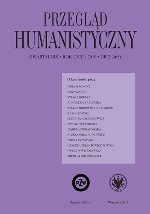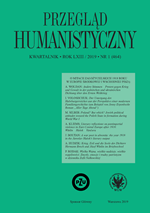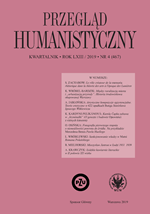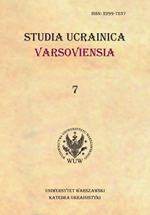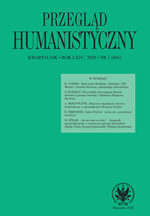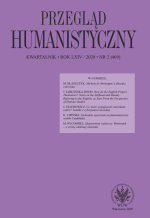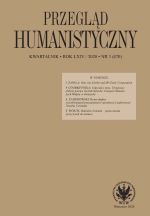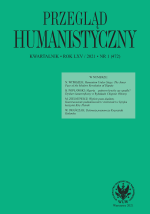Author(s): Halyna Żukowska / Language(s): Ukrainian
Issue: 7/2019
The article discusses the features of the artistic interpretation of the sacrum spherein the prose of Maria Matios, in particular in the stories „Solodka Darusia” („SweetDarusia”) and „Maizhe Nikoly Ne Navpaky” („Almost never the other way round”). Theauthor artistically comprehends the tragedy of human destiny against the backdrop ofbloody history of the twentieth century, the author deeply immerses in the psychologicalbeing of a woman, Maria Matios who is looking for the meanings of the phenomenon ofhuman life, which is the most extraordinary because, according to the Christian doctrine,given by God.It is revealed that the sphere of sacrum in the analyzed artistic texts is fi rst of all rootedin the refl ection of purely religious folk experience, which is expressed through the use ofreligiously marked concepts, symbols, allusions in texts. In the spirit of Christian doctrine,the characters of Maria Matios’ undergo a purifi cation process through suff ering: somehave their cross to bear, others rebel, being in extreme situations. The image of God inthe works of Maria Matios is ambivalent, it combines the good and evil in itself, whileHis will remains incomprehensible to a mortal human. The author makes no sense of theopposition sacred – profane, confi rming the axiological ambivalence of the sacred. It wasinvestigated that the writer, besides purely religious segments, gives sacred statuses tohuman feelings, land, water, music, etc. The all-embracing nature of the sphere of sacrumin the prose of Maria Matios extends not only to the world of the alive, but also to theworld of the deceased where there are the souls of the deceased.The functional load of the sacrum sphere in the stories of Maria Matios „SolodkaDarusia” („Sweet Darusia”) and „Maizhe Nikoly Ne Navpaky” („Almost never the otherway round”) is deepened by ethno-national coloring in which the sacred and profaneare especially converging and interpenetrating, where the processes of sacralizationand desacralization are constantly taking place, where Christianity and paganism areclosely intertwined. The universal formula of the sacred worldview, embodied in the artistic discourse of Maria Matios, became the triad of theocentrism – anthropocentrism –ethnocentrism.
More...
